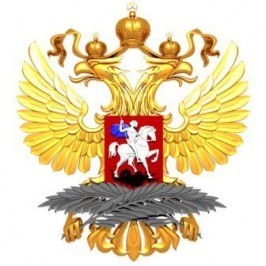Question: In connection with the EU Foreign Affairs Council meeting on September 21, where the situation in Belarus will be discussed, that country’s Foreign Minister Vladimir Makei warned that Minsk was ready to “give an appropriate answer” if the EU imposes sanctions against Belarusian officials. How would you comment on this statement, as well as the recent reports in a number of media outlets that former candidate for President of Belarus Svetlana Tikhanovskaya is going to participate in the above-mentioned meeting in Brussels?
Maria Zakharova: Our position on the sanctions instruments used by the European Union is well known. It is illegitimate in terms of international law and is unacceptable interference in internal affairs. When applied to Belarus, it also runs contrary to the goal of restoring stability, establishing a dialogue, launching the constitutional process, and easing tensions that EU representatives mention so often. Attempts are being made to rock the boat, so Brussels should probably expect some retaliatory measures to follow.
Svetlana Tikhanovskaya’s joining the upcoming EU council event, even for an unofficial discussion, is highly indicative in this context. We consider this contact, if it takes place, as further evidence of the European Union's deviation from its earlier statements denying any geopolitical dimension in the situation with Belarus or any similarities with the February 2014 scenario in Ukraine, when a number of EU countries acted as guarantors of the agreement between the authorities and the opposition, which was trampled on the following day.
Statements by EU High Representative for Foreign Affairs and Security Policy Josep Borrell at the September 15 plenary session of the European Parliament on the non-recognition of Alexander Lukashenko as the elected President of Belarus confirmed this, and so did the September 17 European Parliament resolution that contains an actual call for an unconstitutional change of power in that country.
Along with the threat of using sanctions, Brussels is also working on mechanisms for delivering the previously allocated 53 million euros to the Belarusian NGOs and media handpicked by EU members bypassing the country's official authorities.
This kind of flirting with the self-appointed representative of the Belarusian opposition and inviting her to Brussels “for a discussion” is an integral part of the European scenario of interference in the internal affairs of Belarus. This is a direct violation of the fundamental norms of the UN Charter and the principles of the CSCE Helsinki Final Act. The international community marks these two documents’ anniversaries this year. Hiding behind an imaginary concern for the citizens of Belarus, the European Union is in fact trying to make decisions for them. Once again, we note that the EU prefers to avoid mentioning the constitutional reform aimed at facilitating a national dialogue in that country.
In general, as we can see, these tendencies are increasingly becoming permanent fixtures in the European Union’s political arsenal – disrespect for objective internal political realities; unrestrained support of opposition forces going as far as recognition of self-appointed leaders by certain EU member states Brussels is unable to keep in line; the use of sanctions, pressure and propaganda as tools to replace existing governments. Unfortunately, Belarus is not the only example of this. We urge the European Union to reconsider this policy line, which leads to the erosion of the international legal foundation of the international order, and in the case of Belarus, prevents the country from returning to normal.























